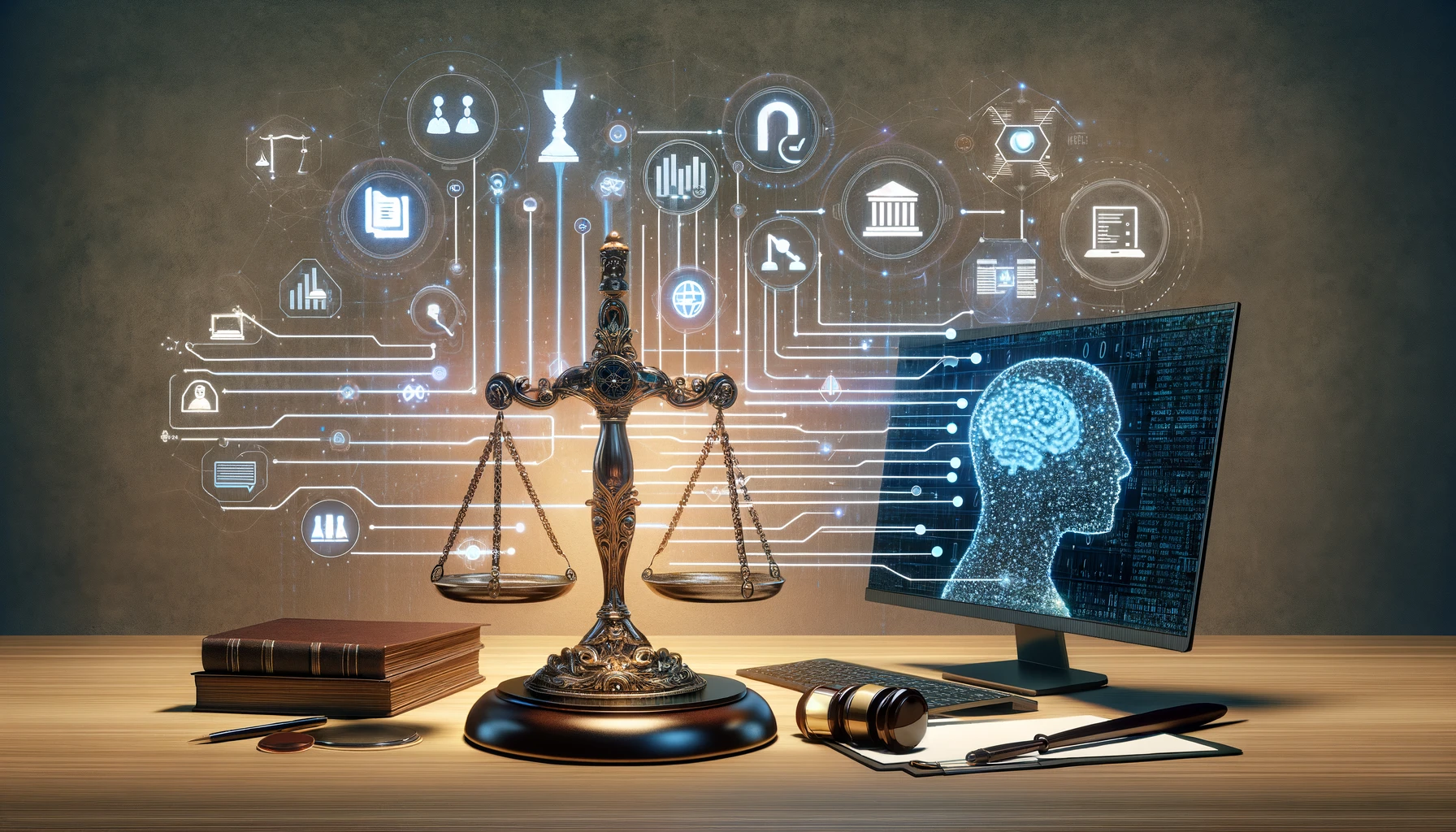
Plea Bargains and the Pressure to Perform
In the overburdened criminal justice system, plea bargains are a stark reality. A vast majority of cases never see the inside of a courtroom, resolved instead through negotiation. This places immense pressure on defense attorneys and paralegals to quickly craft persuasive proposals that protect their client’s interests while acknowledging the strength of the prosecution’s case.
Time is a constant enemy. Heavy caseloads incentivize falling back on familiar formulas and boilerplate language. Yet, each plea proposal should be tailored to the specific case and the individual client. This is where tools like ChatGPT might offer support, allowing for more efficient exploration of possibilities while fighting the formulaic trap.
But how does a language model like ChatGPT fit into this high-stakes process? Let’s start with a quick reminder of its core capabilities….
ChatGPT as Your Drafting Sidekick
ChatGPT, as we’ve discussed, is a powerful language processing tool. It can understand complex information, follow instructions, and generate different styles of text. In the context of plea bargain proposals, it offers potential assistance with:
- Concise Case Summaries: Distill lengthy police reports or witness statements into essential bullet points, saving valuable time spent sifting through case files.
- Exploring Sentencing Options: Provide ChatGPT with relevant statutes and it can outline potential plea scenarios based on different charges or sentence lengths.
- Drafting Initial Language: Offer ChatGPT a case summary and it can generate a starting-point draft of the plea proposal, allowing for faster editing than starting from scratch.
Crucial Note: For plea bargaining, highly specific prompts are essential. Avoid vague requests like “write a plea offer.” Focus on the unique elements of YOUR case and the plea outcomes you seek.
The true magic of using ChatGPT lies in crafting effective prompts. Let’s dive into actionable strategies for maximizing its usefulness in drafting plea bargain proposals.
Also read:
Prompt Strategies for Effective Plea Proposals
Let’s look at specific ways to tailor your prompts to get the most out of ChatGPT when drafting plea bargain proposals:
- Case Summarization
- Prompt: “Analyze this case file and provide a bullet-point summary of the following: 1) Defendant’s charged offenses, 2) Key pieces of evidence for the prosecution, 3) Potential mitigating factors based on the defendant’s background.”
- Purpose: ChatGPT quickly extracts the core elements, allowing you to focus on crafting the legal argument rather than parsing documents.
- Exploring Plea Options
- Prompt: “Based on [state/jurisdiction] sentencing guidelines, draft 3 potential plea bargain proposals. Option 1: Focus on reducing the severity of charges. Option 2: Emphasize minimizing jail time. Option 3: Seek a compromise between reduced charges and a shorter sentence.”
- Purpose: Generates potential starting points, sparking strategic thinking. REMEMBER: Always verify sentencing guidelines independently.
- Anticipating Counterarguments
- Prompt: “Act as the prosecutor. Critique this plea bargain draft, providing two likely counterarguments and suggesting a revised offer from the prosecution’s perspective.”
- Purpose: Helps anticipate the opposition’s strategy, strengthening your proposal and potentially exposing blind spots.
- Refining Language
- Prompt: “Rewrite this plea offer paragraph to strike a balance between acknowledging the seriousness of the offense and highlighting the defendant’s potential for rehabilitation. Avoid language that minimizes the crime.”
- Purpose: Helps fine-tune tone and phrasing, which is vital in persuasive plea negotiations.
Caveat: ChatGPT's knowledge of case law and local sentencing practices might be limited. Its strength lies in processing information you provide and generating different options.
While ChatGPT can be a helpful tool, it’s easy to over-rely on AI. Let’s discuss why human review and judgment remain irreplaceable.
Also read:
Beyond the AI: Human Judgment is Paramount
ChatGPT can save time and suggest creative angles, but it’s dangerously naive to view it as anything more than a tool. Here’s why your legal knowledge and strategic thinking cannot be outsourced to an AI:
- Understanding Client Goals: ChatGPT doesn’t know your client’s priorities or their risk tolerance. Is avoiding a felony conviction paramount, or is a shorter sentence more desirable? This shapes negotiations.
- Nuances of Negotiation: Plea bargaining is an art of persuasion, not just of legal writing. ChatGPT lacks the ability to read the prosecutor’s demeanor, sense hesitation, or leverage long-standing professional relationships.
- Ethical Considerations: Only a human legal professional can fully weigh the ethical implications of a plea deal, ensuring it aligns with their duty to the client and the broader justice system.
Positioning ChatGPT for Success: Think of it as a brainstorming partner, an initial draft generator, or a tool to expose potential weaknesses in your argument. The final proposal requires your critical eye and strategic refinement.
Given the high stakes of criminal cases, there are significant ethical concerns about AI usage. Let’s wrap up with a discussion of responsible usage…
Also read:
Ethical Considerations & Best Practices
Using AI in plea bargain proposals introduces a range of ethical questions that attorneys and paralegals must address with care and clear judgment:
- Potential for Bias: ChatGPT is trained on vast amounts of data, which may reflect existing biases and disparities within the criminal justice system. Uncritical reliance on its suggestions risks perpetuating these biases.
- Transparency: Should you disclose to the opposing side (and the court) the use of AI in your drafting process? This is an emerging question in legal ethics.
- Client Understanding: Ensure your client understands that AI played a role in the process, especially if the plea proposal includes language or strategy suggestions generated by ChatGPT.
- Ultimate Responsibility: The attorney is ultimately responsible for the content and ethical implications of the plea proposal. AI tools don’t absolve you of this professional duty.
Looking Ahead
The use of AI in law is rapidly evolving. It’s crucial for legal professionals to proactively engage in discussions about ethical guidelines and best practices regarding the use of tools like ChatGPT in plea bargains and other legal negotiations.


